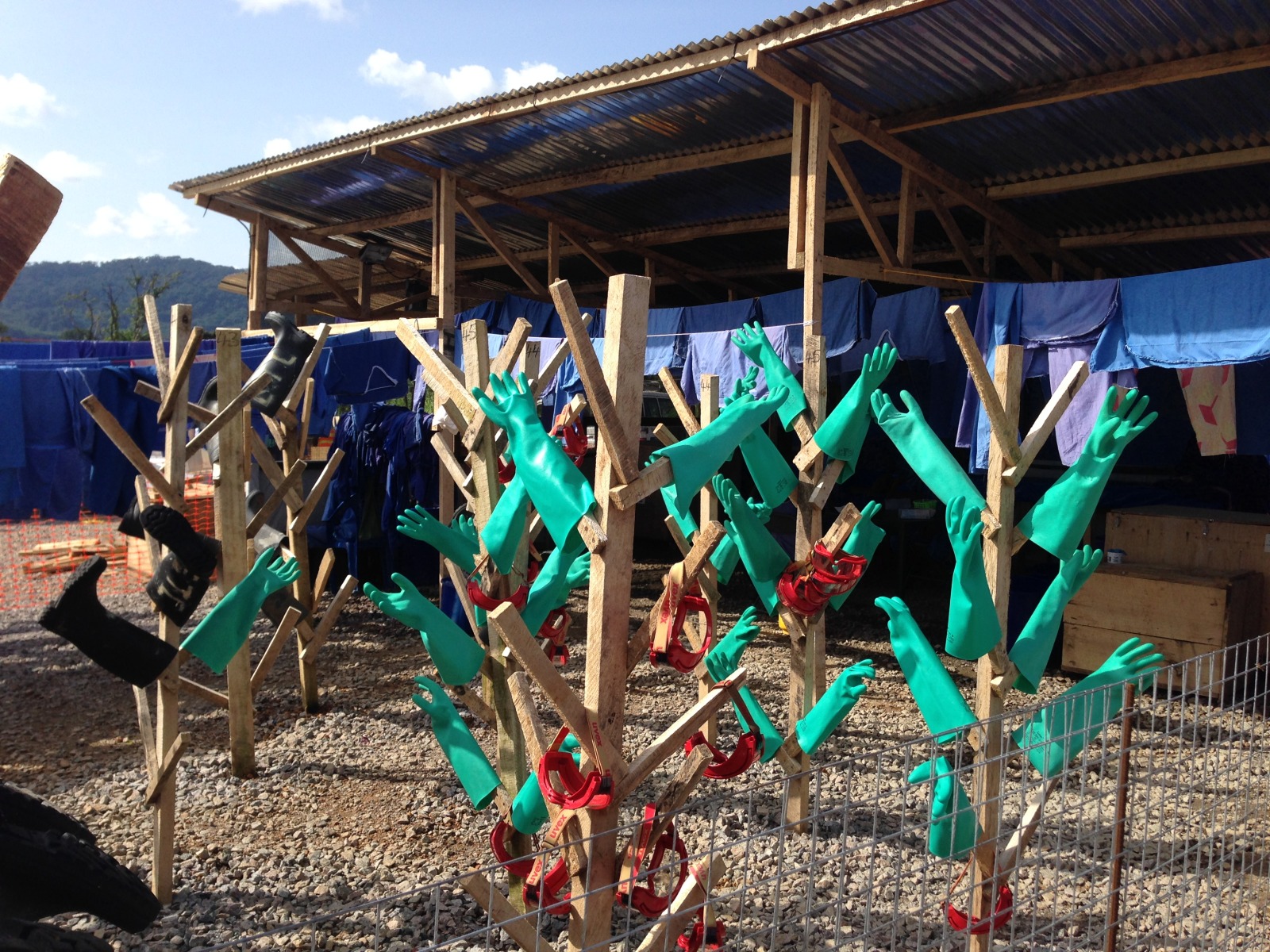The knock-on effect of Ebola
Interview with
The Ebola outbreak doesn't mean that all of the other major health problems, like  malaria, that were previously in affected countries like Sierra Leone, have disappeared. In fact, the strain of coping with Ebola is having some serous knock-on effects and it's robbing people of routine care for many other diseases and even child birth. Dr. Yaron Wolman is the head of the child survival section at Unicef. He's currently in Free Town, the capital of Sierra Leone, where he's leading the charity's efforts to stop the outbreak becoming a full blown humanitarian crisis. He explained to Chris Smith what factors turned Sierra Leone into a ticking time bomb for Ebola...
malaria, that were previously in affected countries like Sierra Leone, have disappeared. In fact, the strain of coping with Ebola is having some serous knock-on effects and it's robbing people of routine care for many other diseases and even child birth. Dr. Yaron Wolman is the head of the child survival section at Unicef. He's currently in Free Town, the capital of Sierra Leone, where he's leading the charity's efforts to stop the outbreak becoming a full blown humanitarian crisis. He explained to Chris Smith what factors turned Sierra Leone into a ticking time bomb for Ebola...
Yaron - One of the reasons that the Ebola outbreak has expanded so quickly in this country is that the health system was very fragile even before the Ebola outbreak from very long civil war in these countries. The impact of the Ebola outbreak on this very fragile health system is that less women and children are visiting the health facilities. Many of them have less access to all the essential primary healthcare services like vaccinations, treatment for malaria, treatment for pneumonia, treatment for diarrhoea, skilled birth attendants. Things that were there before the Ebola outbreak are not there anymore. People are scared to go to the health facilities because they're afraid of being infected there. And also, in some of the health facilities, some of the health workers unfortunately got infected and some of them have died. So, there are also some health facilities that for some period of times do not have the health workers to provide the healthcare services there.
Chris - In theory, the impact of the other problems could be far and away much larger than the impact that Ebola has had.
Yaron - Well, it's very difficult also to differentiate between the two because they're very strongly interlinked. Currently still, probably more people are affected by malaria than they are affected by the Ebola number-wise. But the nature of the expansion of the Ebola outbreak means if we do not contain it in the coming weeks, we might face a very severe catastrophe like previous large scale global outbreaks from the early 20th century like the Spanish flu for example. So, unless currently we do manage to concentrate all our efforts and to contain the outbreak in the coming weeks, the scope of the outbreak will deteriorate very quickly and we might encounter massive numbers of patients because of the very high mortality rate, massive numbers of casualties.
Chris - Can you paint a picture for us of what the situation is like at the moment on the ground?
Yaron - Well, I'm based in the capital which is called Freetown. Freetown is one of the epicentres of the outbreak currently. We do see even here that it's very difficult to provide proper treatment services to the Ebola patients. However, because of the efforts of the different development parties with the government, gradually, things are improving in terms of the number of beds that are being available for treatment and the laboratory facilities. But still, the number of cases are on the increase. We do need to ensure that in such a setting who have crowded urban settings with slums, we do manage to invest enough, both in the prevention of Ebola. So, very strong social mobilisation and communication campaigns and at the same time also in the Ebola treatment part, which is to ensure that there are enough treatment beds for patients, enough laboratory capacity in order to provide rapid and accurate diagnosis of the cases. And at the same time also, cater to the special vulnerable groups like children and women because women and children are disproportionately affected by the outbreak and we have multiple cases of children who are either they're mothers or both their parents have been affected by the outbreak. They have suspected contacts, but they haven't yet develop the symptoms. These are the kinds of challenges that all of the partners, the development partners are encountering in our efforts to work together with the government to contain the outbreak.
Unicef is one of many national and international charities helping to fight the Ebola outbreak, to find out how you can help click
here.
- Previous When will an Ebola vaccine be ready?
- Next The fight against Ebola









Comments
Add a comment